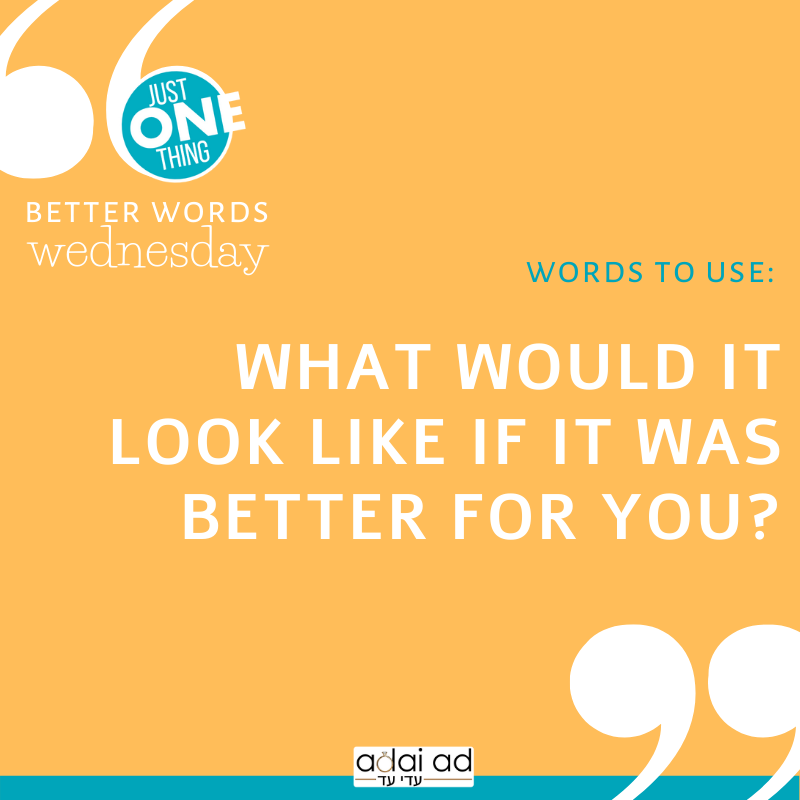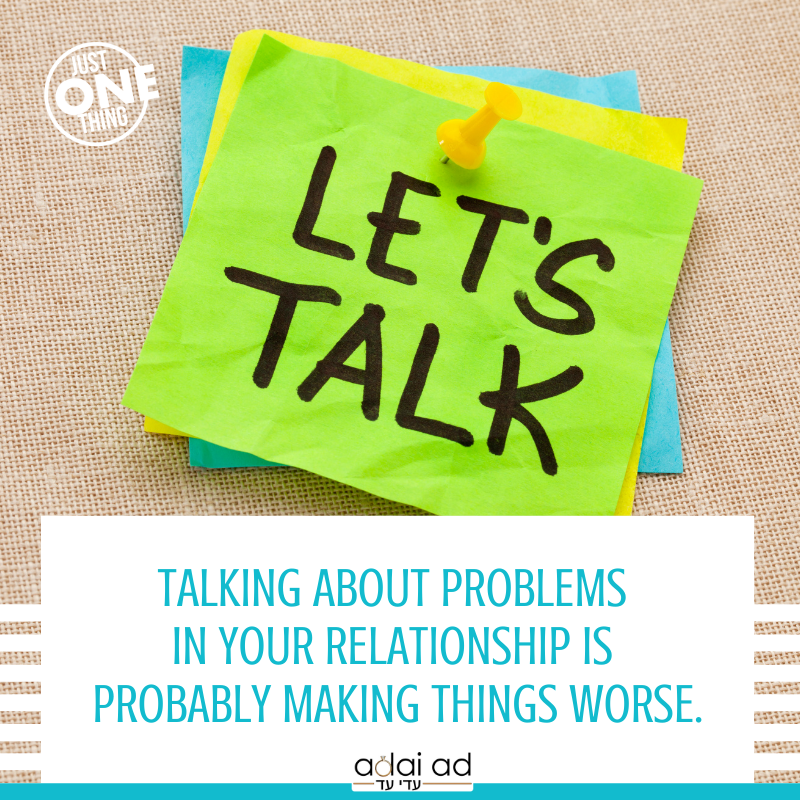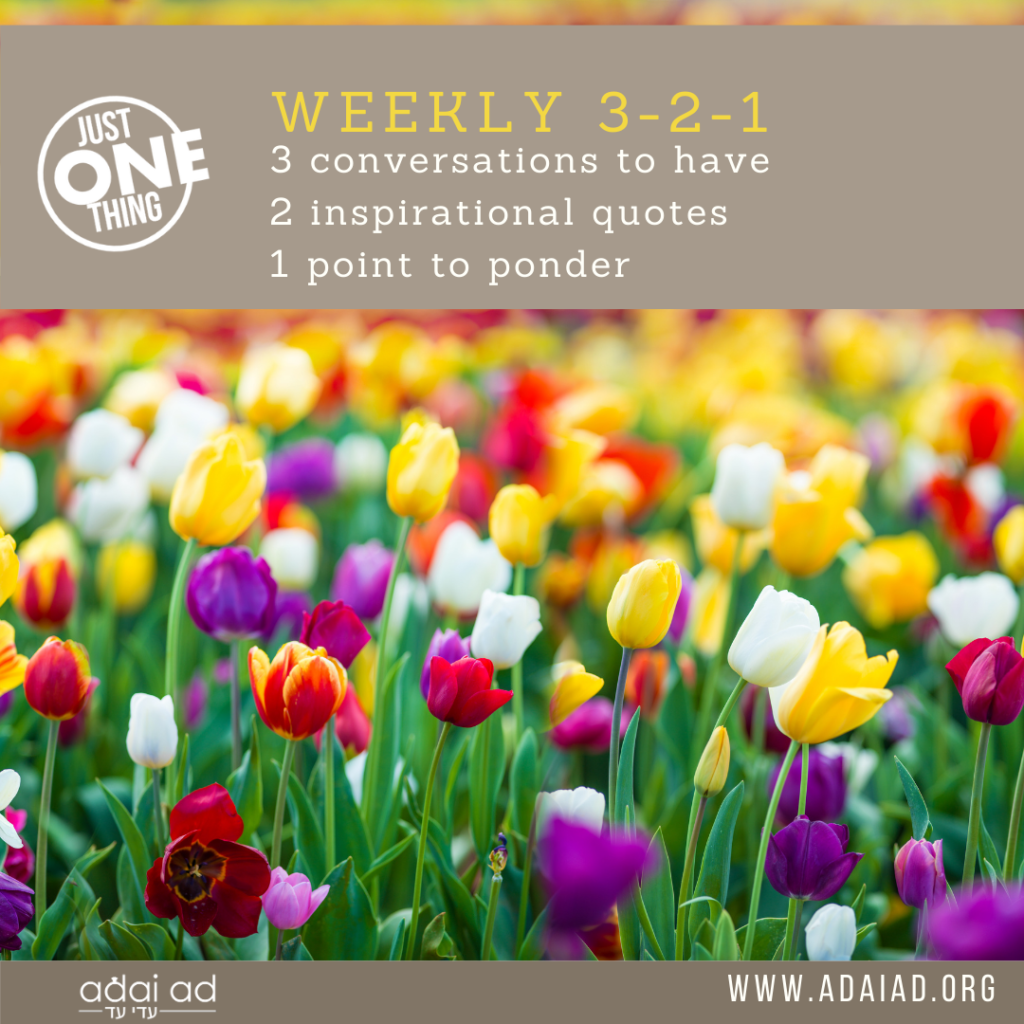Words to Use: “What would it look like if it was better for you?”
You might use this question when talking about differences and change requests. The idea is to get a better picture of the specifics of what the other is envisioning or wishing. For example, if you are discussing your different ideas for Shabbos afternoon family time. You might ask “What would it look like if the […]
Words to Use: “What would it look like if it was better for you?” Read More »








